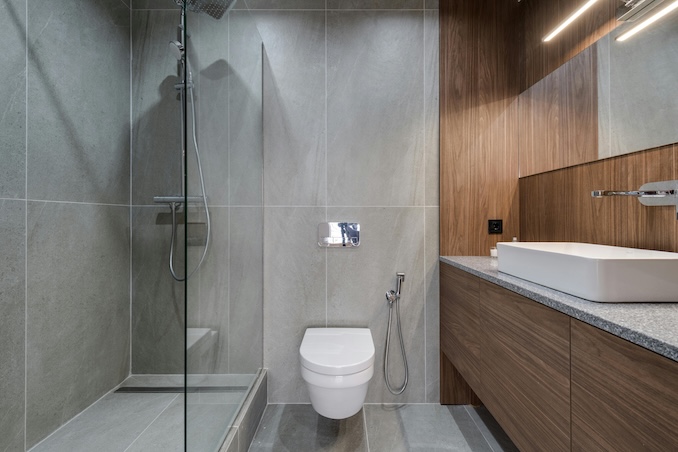In Toronto’s fast-paced housing market, a home inspection can make or break a real estate deal. While buyers might expect to hear about cosmetic flaws or worn-out roofing, it’s often the plumbing system that causes the most serious concerns and the costliest surprises.
This is especially true in older Toronto neighbourhoods filled with beautiful but aging homes. Behind their charming facades, many of these properties conceal plumbing systems that don’t meet modern standards. For both buyers and sellers, understanding common plumbing issues is essential for avoiding complications during the sale process.

Plumbing: A Hidden Deal-Breaker
1. Outdated Pipes
Homes built before the 1960s often contain galvanised steel pipes, which corrode internally over time, reducing water pressure and posing health concerns. These pipes are flagged during inspections, and full replacements can be expensive, leading some buyers to hesitate or renegotiate.
In addition, older homes may still have clay or cast iron sewer lines, both of which are vulnerable to cracks, tree root invasions, and eventual collapse. These problems are typically uncovered through a camera inspection and can be among the most expensive to fix.
2. Improper Venting and Drainage
DIY plumbing jobs or decades-old renovations often leave homes with poor drainage slopes, undersized pipes, or missing vent stacks. These hidden flaws can cause slow drains, sewer odours, or inconsistent water flow, all of which raise red flags during a home inspection.
Inspectors are trained to spot plumbing that doesn’t comply with the Ontario Building Code, and they often recommend a deeper look by a licensed professional when something feels off.
3. Lack of Flood Protection
With Toronto seeing more intense storms and unpredictable weather, basement flooding is a growing concern. Many older homes lack essential flood prevention devices like sump pumps and backwater valves.
Home inspectors increasingly highlight the absence of these features as a risk, especially for properties in low-lying areas or those with a history of moisture issues.
What Sellers Can Do to Prepare
If you’re listing your home in Toronto, a few proactive steps can prevent headaches down the line:
Book a Pre-Sale Plumbing Assessment
Before putting your home on the market, it’s wise to have a licensed plumber do a full inspection. They can assess visible and hidden plumbing features, run a sewer camera if needed, and provide advice on cost-effective fixes. This allows you to make improvements before the buyer’s inspector finds them.
Upgrade the Essentials
Simple updates like replacing leaking fixtures, installing shut-off valves, or updating corroded pipe sections can increase buyer confidence and reduce the likelihood of deal-breaking inspection reports.
Install Flood Prevention Devices
Backwater valves and sump pumps can not only protect your home but may also qualify for the City of Toronto’s Basement Flooding Protection Subsidy Program, which offers up to $3,400 in rebates.
Advice for Buyers: Don’t Skip the Inspection
In competitive markets, some buyers feel pressured to waive conditions like inspections. However, skipping the plumbing inspection can lead to unexpected expenses later.
If you’re buying a home especially one built before the 1980s make sure your inspector checks for:
- Galvanised or lead supply lines
- Cast iron or clay drains
- Inadequate venting or improper slope
- Signs of water damage or previous leaks
- Lack of flood protection
When issues come up, it’s smart to call experienced GTA plumbers for a second opinion. Unlike general inspectors, they can perform more detailed diagnostics and give accurate repair estimates before you close.
How GTA Plumbers Help Homeowners Stay Ahead
Licensed plumbers in Toronto know the ins and outs of the city’s housing stock. From mature tree roots threatening old sewer lines in High Park to low water pressure in East York, they understand the challenges specific to each neighbourhood.
Their services aren’t just for emergencies many homeowners rely on them to:
- Replace aging pipes and valves.
- Upgrade drainage and venting systems
- Install sump pumps and backwater valves.
- Conduct camera inspections before listing or buying.
Bringing in expert help early not only improves your home’s inspection results but also protects your long-term investment.
Toronto homes fail inspections over plumbing more often than many people expect, especially when aging infrastructure goes unchecked. But the good news is that most of these problems can be identified and addressed before they derail a real estate deal.
Whether you’re preparing to sell or planning to buy, take the time to understand the hidden plumbing risks and consult with qualified professionals. A small investment in prevention today can save you thousands in repair costs and make the home inspection a smooth, stress-free experience.

